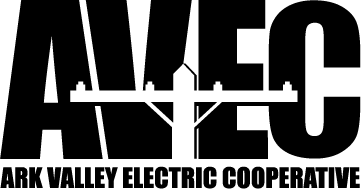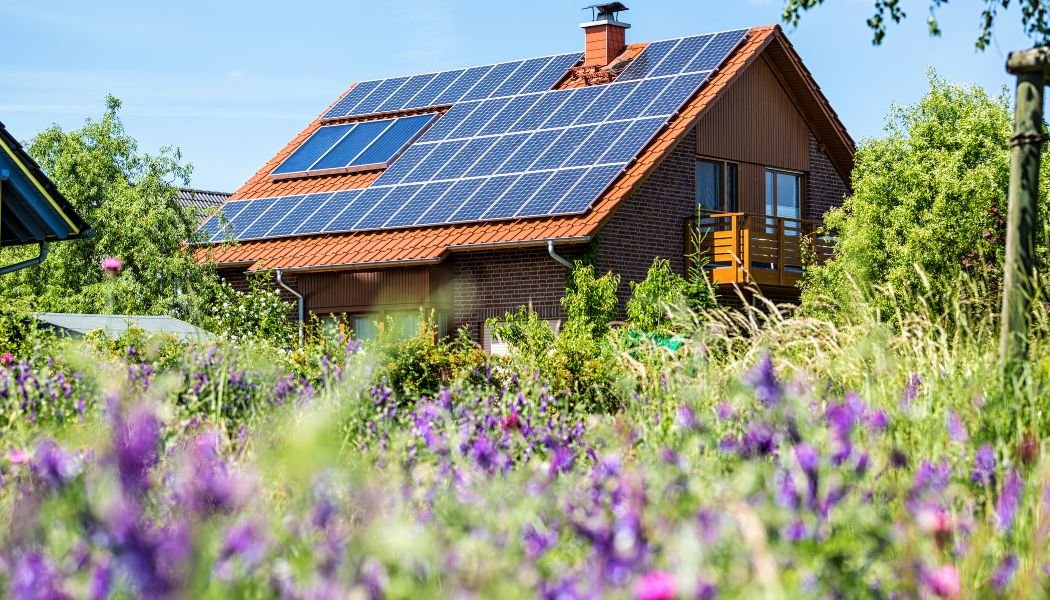Cogeneration
Are you considering investing in solar generation? Here are some important details to know.
When considering solar, most members are looking for ways to save money, and others are interested in going green. Whatever the reason, we want to make sure our members will know what to expect from Ark Valley if they do decide to install solar. Please review all the information provided to help you make the decision that is right for you, and let us know if you have any additional questions.
Checklist for the Interconnection Process
☐ Read “What You Need to Know Before Installing Solar” below (or download here) and call us if you have any questions.
☐ Contact Ark Valley to get the appropriate sizing limit for your solar installation. This step is recommended early in the process to reduce delays in paperwork and corrections.
☐ Choose a reputable solar contractor. Click here for questions to ask a contractor before signing a contract.
☐ Work with the solar contractor to complete and submit an application, and one-line diagram for approval from Ark Valley before construction begins. The applicable processing fee ($250) and deposit ($500) are also due at that time.
☐ Ark Valley will review the application and contact you or the contractor with any necessary changes or with the approval for construction.
☐ Submit a signed interconnection agreement to Ark Valley before your distributed generation system is installed so it can be connected to the electric grid when it is completed. The agreement is intended to ensure safe, reliable and quality electric service for all.
☐ When the solar array is installed and ready for inspection, submit the completed Certificate of Completion.
☐ Ark Valley will inspect the system and will reprogram the meter to register the energy that is put on the electric grid. You will be contacted when you can begin parallel generation with your solar array. The deposit less any additional processing fees will be refunded after interconnection.
What You Need to Know Before Installing Solar
Does Ark Valley pay for energy produced by member solar generation?
Yes. Ark Valley offers parallel generation. This means when grid-interconnected solar systems generate more electricity than the member can utilize the instant it is produced, the excess electricity is fed back into the grid and used elsewhere on the distribution system. Ark Valley purchases the excess electricity at the rate of 150% of the wholesale monthly system average cost of energy per kilowatt-hour. The cost varies month to month, but in 2023 the average paid for parallel generation was 3.0¢/kWh.
This rate may be less than you would expect, but keep in mind that it is the energy portion of our wholesale rate, not the retail rate. Also, there are several components to the wholesale rate the cooperative pays, but the only component that is quantitatively reduced on our wholesale bill due to our member’s interconnected solar is the amount of energy purchased. Energy is the least expensive part of our costs, but we do pay our members a 150% premium for that energy.
Does Ark Valley offer a net metering option?
No, but some companies that our members have worked with have provided misleading information by assuming net metering is offered or they use the wrong electric rate. These assumptions calculate a much better return on the member’s solar investment than will actually be realized. Also, some members have been led to believe that they will no longer receive a bill from Ark Valley, which isn’t the case.
What is the return on the solar investment for members?
The greatest payback members have is from the energy they consume from their solar array themselves, because it reduces the amount of energy purchased from Ark Valley. Another important component that is critical to reduce the payback period is the positioning of the solar arrays. In order to maximize solar production, they need to be positioned to optimize the late afternoon to early evening hours of sunlight.
Why is there a size limit on member solar?
Ark Valley has implemented the size limits to allow self-generation by members that will ensure a solar system is appropriately sized to meet our members’ energy self-supply needs without causing load issues on the distribution system.
Questions to Ask a Solar Contractor Before Signing a Contract
Purchasing a solar array is a big investment and it’s important that you get the best system for a reasonable price that is sized correctly for your home and installed properly. It’s best to get at least 3 bids in writing in order to compare the equipment and pricing of each carefully before making a final decision.
Questions about the solar company’s background
How long have you been in business?
Are you licensed and insured to do business in Kansas?
How many solar systems has your company installed and are they installed by employees or subcontractors?
Can you provide a list of references?
Questions about the installation at your home
Make sure you ask about the options available to you regarding brands of systems, warranties, where the product is manufactured, and whether you’ll qualify for any tax credits, rebates, or incentives.
Ask how you will be able to monitor the output of your panels and also what your payback period will be. Remember, Ark Valley does not offer net metering so it’s imperative the solar company understands this when calculating the payback period and your potential savings. (Please refer to the “What You Need to Know Before Installing Solar” document.)
Questions about the bid, contract, and payment
Is the bid an estimate or a fixed price? If it’s a fixed price, who pays for unexpected problems that may arise during installation?
Does the bid include warranty information and expected operation and maintenance costs? Who would you contact if there was a problem and you needed to file a claim?
Does the bid include payment options and financing details?
Does the bid have details about who will file the necessary paperwork for tax credits, incentives, or rebates?


